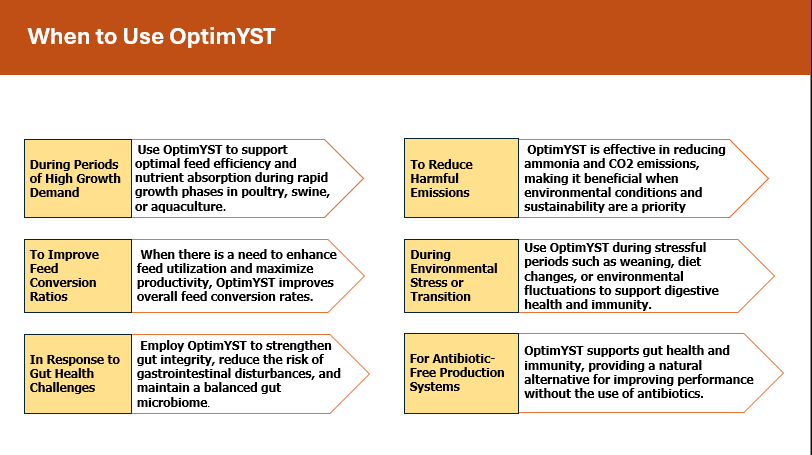
Maintaining a Gut Health in Swine
Challenges
1. Dietary and Environmental Stressors: Changes in diet, stress from weaning, transportation, overcrowding, and hygiene issues can challenge gut health in swine.
2. Pathogen Infections: Bacterial, viral, and parasitic infections can cause gastrointestinal disturbances, leading to diarrhea, reduced feed efficiency, and poor growth.
3. Antibiotic Resistance: Overuse of antibiotics in animal production has led to resistance, limiting effective treatments for gut infections.
Importance of Gut Health in Swine
The gut is essential for absorbing nutrients that are critical for growth, production, and overall health. A well-functioning digestive system ensures that the pig can efficiently convert feed into energy and nutrients needed for body maintenance, immune function, and production. Poor gut health leads to nutrient malabsorption, weight loss, and a weakened immune system, affecting the pig’s performance and profitability.
Gut Challenges at Different Stages of Pigs' Life
Pigs at different stages of life can face gut-associated problems often exacerbated by the modern pig production system.
- Neonatal Stage (Birth to Weaning): Pigs have underdeveloped digestive and immune systems, making them vulnerable to gut issues such as diarrhea and malnutrition.
- Weaning: This is a critical phase where pigs are exposed to new diets and stress, often leading to post-weaning diarrhea, poor feed intake, and gut inflammation. Piglets that are nowadays weaned at an early age with immature intestines and not fully developed gut microbiota are vulnerable to oxidative stress and destruction of the epithelial barrier and villus structures in the jejunum upon exposure to dietary and environmental factors, jeopardizing intestinal integrity and piglet performance
- Growth and Finishing Stages: As pigs grow, they may face challenges such as nutrient malabsorption, gut inflammation, and sensitivity to pathogens due to changes in diet and environment. For adult pigs (fatteners and sows), several factors can influence their GIT integrity. These include the presence of GIT pathogens, which produce toxins that harm the GIT. Moreover, changes in the diet, abuse of antibiotic treatments, and environmental stressors such as heat stress and cold stress can cause perturbation of commensal gut microbiota resulting in gut dysbiosis or damage the small intestinal mucosa, which can affect the pigs’ GIT functions and thereby compromise the pigs’ gut health demanding an efficient intervention strategy
- Breeding and Lactation: Sows require optimal gut health to support milk production and nutrient transfer to piglets, ensuring their survival and growth.
Interactions of Gut Microbiome and Immunity
The gut microbiome plays a significant role in:
- Enhancing Immunity: Beneficial bacteria in the gut help to protect against pathogens by competing for nutrients and space, as well as producing antimicrobial compounds. They also stimulate the gut-associated lymphoid tissue (GALT), which is crucial for immune defence.
- Maintaining Gut Barrier Integrity: A balanced microbiome strengthens the gut lining, preventing harmful pathogens and toxins from entering the bloodstream.
- Modulating Inflammation: A healthy gut microbiome helps control inflammation, reducing the risk of inflammatory diseases and supporting overall immune balance.
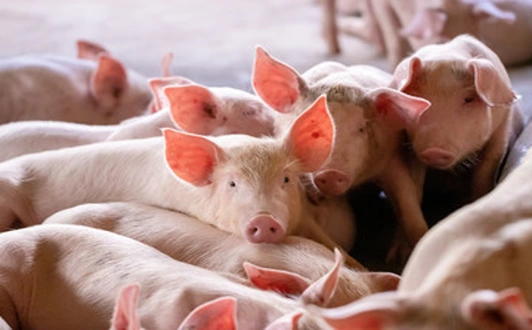
Mycotoxins in Intestinal Disruptions
Fumonisins produced by Fusarium, particularly fumonisin FB1 (FB1), and trichothecenes, particularly deoxynivalenol (DON), are the most well-known mycotoxins in terms of intestinal pig health. FB1 and DON can induce intestinal morphological and histological changes as evidenced by villi atrophy and fusion, reduced villi height and cell proliferation in the jejunum, and a decrease in goblet cells and lymphocytes. These mycotoxins also significantly up-regulated the expression of pro-inflammatory cytokines (TNF-α) in the jejunum and ileum and subsequently reduced the expression of TJ proteins (occludin) in the intestine. This alteration in the intestine increases the translocation of pathogenic bacteria and may predispose piglets to infections by enteric pathogens
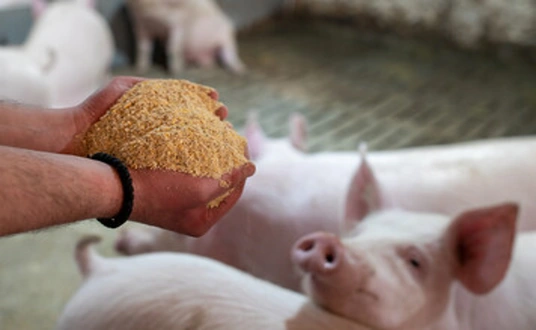
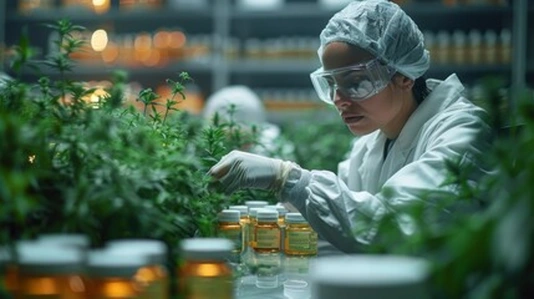
Strategies to mitigate gut challenges
Nutrition is integral to the pig’s life because it affects the animal’s overall performance and can provide solutions to gut-related problems. Nutritional intervention strategies have been applied to improve the gut health and productivity of pigs challenged by various stressors such as changes in the diet, bacterial infection, and environmental stressors. The goals of such strategies are to improve nutrient digestion and absorption, regulation of gut microbiota to more favourable bacterial species, and immune modulation to enhance disease resistance, all of which are attainable with the supplementation of amino acids, phytogenic (essential oils), prebiotics, probiotics, and organic acids
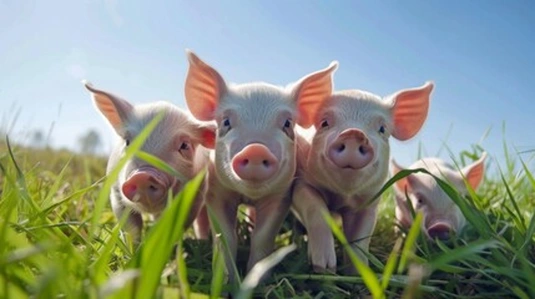
What OptimYST Offers?
The integrated approach to gut modulation and health leverages a combination of natural agents that work synergistically to optimize the gut environment. This strategy involves
- Blocking harmful pathogens from attaching to the gut lining, thereby reducing the risk of infections.
- Beneficial microbes are supported to outcompete harmful bacteria, promoting a balanced gut microbiome. Additionally, certain agents directly break down bacterial cell walls, adding an extra layer of protection against infections.
- Anti-inflammatory and antioxidant properties help to reduce gut irritation and oxidative stress, creating a more stable and healthier gut environment.
- Furthermore, this approach reduces harmful compounds like ammonia in the gut, which not only prevents irritation but also enhances nutrient absorption.
- Collectively, these effects contribute to improved gut health, leading to better digestion, enhanced immunity, and overall increased efficiency in animal production.
Our Solution OptimYST
OptimYST revolutionises broiler poultry nutrition by optimizing gut health through a scientifically formulated blend. It promotes a balanced gut microbiota, enhancing nutrient absorption and maximizing feed efficiency for accelerated growth. By bolstering immune function and mitigating digestive challenges, OptimYST ensures robust health and vitality in every animal, translating to superior performance and profitability on your farm.
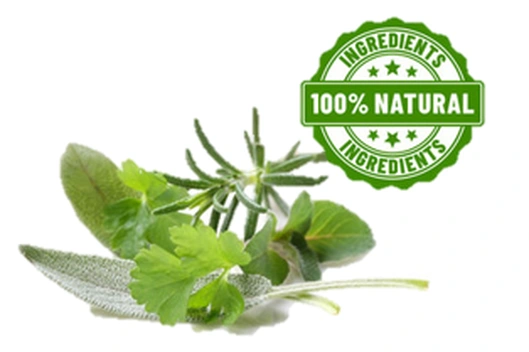
Key Features of OptimYST
Natural Ingredients
Powered by a blend of phytogenic compounds, yeast derivatives, and probiotics, ensuring safe and sustainable feed enhancement.
Improved Feed Efficiency
Maximizes feed conversion rates, leading to better productivity and cost-efficiency.
Advance Health Gut Formula
Enhances digestive enzyme activity and nutrient absorption for optimal animal growth and performance
Multi Species Application
Effective across broilers, layers, swine, and aquaculture, providing versatile feed solutions.
Supports Growth Performance
Promotes faster weight gain and enhances overall performance, leading to higher production outputs.
Reduced Digestive Disorders
Minimizes the occurrence of gastrointestinal issues, leading to healthier animals and lower mortality rates.
Easy to Incorporate
Flexible in feed formulation and compatible with existing feed programs, making it simple to integrate into various production systems.
Boosted Immune Response
Strengthens natural defensce against gut pathogens, reducing the need for antibiotics and improving animal health.
